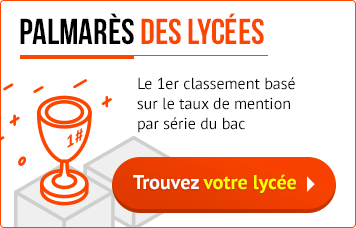Annales gratuites Bac ES : Books bartering
| Le sujet 2007 - Bac ES - Anglais LV1 - Expression |

|
|
Avis du professeur :
Le premier sujet d'expression est un sujet d'argumentation.
Il semble être destiné aux plus littéraires d'entre vous. Il permet de mettre
en lumière votre culture et votre capacité à problématiser. |
The story is set in the nineteenth century, before the American Civil War.
When she saw
the books the tall slave named Grace straightened and asked if I would like a
ewer1 of warm water for my toilet
before she showed me to the master's room. I had shaved by
the river that morning before I'd made my
crossing, but I was pleased at the chance for a hot
wash. When Grace returned, she said the master
bade me to bring the books and leave the
5 rest. She led the way through the narrow hail that
joined the kitchen, warming room, and
buttery to the cool expanse of the main house.
The house was not especially large, nor by any
means the grandest I had been in-some of the
plantation homes along the James2 were more
like palaces-but it was perfect in proportion and
exquisite in appointments.
Grace gestured with
her long-fingered hand - not hands that appeared much accustomed to
10 heavy chores, I noted-indicating I should sit upon a marble
bench. "That is the master's library.
He will be with you presently," Grace said,
and swept away to her duties.
The home's, massive
entrance was to my right, the wide door surrounded by lights of
beveled glass, and I sat there, watching the
golden morning sunshine fracture into tiny
rainbows. Because I had been staring into the
bright light, I could not see him well when he at
15 last opened the library door, for he stood in its shadow.
There was an impression only; of great
height, very erect bearing, and a mellow voice.
"Good day to you,
sir. Would you kindly come in?"
I entered and I
stopped and twirled as if I were on a pivot. It was a double-height room, with
a narrow gallery at the midpoint. Books lined
every inch of it. A very large, plain, and beautiful
20 rosewood desk stood in the center.
"Augustus
Clement", he said, holding out his hand. I shifted the weight of the books
into the
crook of my left arm and shook his hand absently,
for I was transfixed by the magnitude of his
collection. "I've always imagined paradise
as something like a library. Now I know what it looks
like." I barely realized I had spoken aloud,
but Mr. Clement laughed, and clapped me on the
25 shoulder.
"We get a few
of you men through here, or we used to, before my daughter married. I think
she just liked to talk to young men, actually.
But I've never come across one of you with an
interest in books: Set them down there, would
you?"
I placed them on
the rosewood desk, and he worked briskly through the pile. Now that I had
30 seen the magnitude of his library, I doubted he would find
anything of interest to him. But the
Lavater Physiognomy caught his eye. "This is
a later edition than the one I have; I am curious
to see his revisions. Tell Grace what you require
for it and she will see to your payment,"
"Sir, I don't
sell the books for cash."
"Oh?"
35 "I trade for them-barter3-a
book for a book, you know. That way I keep myself in something
fresh to read along
the journey."
"Do you so!
Capital idea!" he said, "Though no way to make a profit."
"I am
interested in money, of course sir; it is necessary for a young man in my
circumstances
to be so. But I trust you will not think me
irresponsible if I tell you I am more interested in laying
40 up the riches of the mind4."
"Well said,
young Mr.—March, was it? Well, as it happens I have business elsewhere
this day,
so why don't you make yourself free of the
library. Do us the honor of taking dinner here, and
you can tell me then what volume you would
consider in barter for the Lavater."
"Sir, I could
not impose upon you-"
45 "Mr. March, you would be
doing me a great kindness. My household is reduced, at present.
My son is away with
my manager on business. Solitude is no friend to science. You must know
that we in the South suffer from a certain
malnourishment of the mind: we value the art of
conversation over literary pursuits, so that when
we gather together it is all for gallantries and
pleasure parties. There is much to be said for
our agrarian way of life. But sometimes I envy
50 your bustling5 Northern cities, where men of
genius are thrown together thick as bees, and the
honey of intellectual accomplishment is produced.
I would like to talk about books with you; do
be kind enough to spare me an evening."
"Mr. Clement,
sir, it would be my very great pleasure."
"Very good,
then. I shall look forward."
55 By afternoon, I could say I
was ready to love Mr. Clement. For to know a man's library is, in
some measure, to know his mind.
1 ewer : container of liquids
2 the James : river
3 barter : exchange merchandise for merchandise without using money
4 laying up the riches of the mind : accumulating cultural knowledge
5 bustling : noisy and busy
Abridged and adapted from March, Geraldine Brooks, 2005
Choose subject 1 or 2.
Subject 1:
a) lines 28-29: "But I've never come across one of you with an
interest in books."
For some people, books are the only possible form of culture. Do you agree with
them? (150 words)
b) lines 56-57: "To know a man's library is to know his mind."
Discuss. (150 words)
Subject 2:
Could bartering be chosen as an interesting alternative to commerce? (300 words)
I - L'ANALYSE ET LES DIFFICULTES DU SUJET
Deux sujets d'argumentation dont le 1er est
davantage destiné aux plus littéraires d'entre vous. Il permet de mettre en
lumière votre culture et votre capacité à problématiser.
Le second sujet offre également la possibilité de présenter une thèse/antithèse
sur le troc et le commerce en général. Ces sujets exigent une pensée structurée
et de bonnes connaissances linguistiques pour paraître le plus convaincant
possible.
II - LES PISTES DE REPONSES
Subject I
a) L'introduction : Vous devez introduire le sujet de façon générale.
● There's no denying
that we all have been taught through books at school.
● It is a well-known fact that books are the basis for our culture.
● People tend to
believe that, ...
●
For most of us...
Puis exposer deux approches.
● It is questionable whether books are the only source of
knowledge.
● However, we may wonder about the limits of books and other
possible sources.
Vous pouvez présenter la thèse en
vous appuyant sur votre expérience scolaire (manuels et livres imposés) et
lectures personnelles.
Dans un second temps, vous pouvez élargir votre propos vers d'autres formes
d'épanouissement culturel : voyages, rencontres, cinéma et musique,
musées, internet, ...
Par exemple :
● An important
aspect of... is...
● It is worth mentioning that ...
● It is interesting to consider ...
Pensez aux mots de liaison ; moreover, in addition, on top of that, ...
Pensez à conclure en élargissant votre point de vue afin d'harmoniser plutôt que d'opposer les différentes sources de culture.
b) Sujet qui semble similaire, toutefois veillez à ne
pas dire les mêmes choses. "Dis moi ce qu'il y a dans ta bibliothèque, je
te dirais qui tu es". Effectivement, une bibliothèque reflète une culture
et une personnalité. Cependant, les apparences sont parfois trompeuses.
Certaines personnes peuvent acheter des livres non parce qu'ils les apprécient
mais plutôt dans un souci de paraître. Il est important de donner son point de
vue en conclusion :
● I approve of / I disapprove of ...
● I must disagree with
...
● I agree (wholeheartedly) with ...
Subject II
Dans un premier temps, il faut définir les termes sans oublier que le troc est une pratique ancestrale.
● It can't be
denied that ...
● It is generally acknowledged that ...
Vous pouvez également introduire votre réflexion sur une analyse du commerce actuel : capitalism, globalization (mondialisation).
A nouveau, vous devez développer vos arguments par le biais d'outils linguistiques appropriés :
● It is
reasonable to assume that bartering is an alternative to profit-making.
● It should be stressed that ...
● Few will argue with the principle that ...
● Yet we must keep in mind that bartering already exists on the net.
● There already exists a golden mean in the name of fair trade (commerce équitable).
Les sujets les plus consultés
Les annales bac par serie
Les annales bac par matière
- Annales Bac français
- Annales Bac philosophie
- Annales Bac maths
- Annales Bac histoire
- Annales Bac géographie
- Annales Bac anglais
- Annales Bac espagnol
- Annales Bac physique
- Annales Bac chimie
- Annales Bac SVT
- Annales Bac sciences (enseignement scientifique)
- Annales Bac SES
- Annales Bac éco-droit
- Annales Bac management des organisations
- Annales Bac littérature




